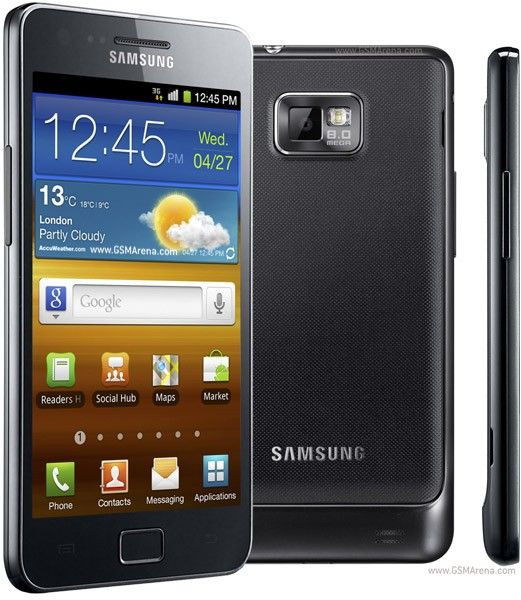EPIC SHOWDOWN: Apple's iPhone 5 and Samsung's Galaxy S2
Analysis: This is more than just gadgets, its glory

Apple and Samsung have had a rocky relationship from the start, but it was always one of necessity. Now the stakes are higher than ever, and the tensions at a new heights.
But it wasn't always this way. They needed each other -- Samsung provided the memory chips and processor manufacturing for Apple, and Apple was Samsung's biggest customer. But that's all changed now.
Apple is shopping in Taiwan for manufacturing partners, and has also accused its South-Korean counter-part of copying its phones and designs. Both have sued each other and continue to take more things to court.
But beyond law-suits Apple has what Samsung wants -- the clout and prestige that comes with having the world's greatest smartphone, among other things.
Samsung, whose sales overtook HP last summer, has proven itself to be an adept manufacturer, able to out-build other tech companies in scale and speed. Despite its progress, its still arguably a second-class citizen.
The Galaxy S2 smartphone may change all of that.
Must Read: Verizon garners nearly a third of iPhone 4 market as unlimited data plan becomes history
Samsung Galaxy S2 has not yet launched in the U.S., but analysts have started to assess the device thanks to its performance in international market, and its already making a strong splash.
The Galaxy S2 has not only set a newbar for smartphones in 2011, it smashed that bar, recreated it in its own image, and put it out of reach of the competition, editors at the UK's Techradar said.
This should put Apple on high-alert as analysts expect the company to release its own iPhone 5 later this year. Selling over 3M units globally so far, the S2 is expected to create a splash in the U.S market as well, and should be a formidable contender to Apple's forthcoming iPhone 5.
Everything looks good on paper.
It sports an 8-MP camera capable of 1080p video capable camera, uses a crisp AMOLED display, powered by a snappy 1.2 Ghz dual-core processor.
It's biggest downfall maybe something that has forever plagued Samsung: software.
In fact, this is what separates all companies from world-class status. Overtime and with enough persistence and luck, and hard-work, it is possible to build a successful manufacturing outfit.
But the software that runs that is like the esthetics that a skilled architect ads to the façade of a building. Granted, you can get engineers to build a structure, but very few can put all together into a piece of functional art.
Samsung is relying on Google's Android platform to power the device, and this may be its downfall. The Google ecosystem is fractured -- meaning things aren't 100% compatible with each other.
Reliance on that also makes for well -- just another standalone smartphone.
Apple is going a different route that may prove to make things more attractive to customers. The new iPhone packs Apple's home-grown OS, the iOS, and while some enthusiasts despise the closed nature, it does give Apple full control and create the world it wishes to make.
Derided by the technical as a walled garden, that garden could be where people want to stay. Apple is linking all new devices to the iCloud, meaning the new iPhone will can share data between a users multiple devices seamlessly. All apps, for example, need to be approved by Apple's team to ensure good usability and a clean finish.
Apple has fended off rivals that had better hardware in the past with its hard-to-beat eco-system of products and services that complement each-other. Come the S2 launch -- expected later this year -- time will tell if that formula still works.
MUST READ: Apple iPhone versus LG Optimus 3D and HTC EVO 3D: Will these Android smartphones destroy iPhone?
MUST READ: Apple iPad: The new canvas for budding artist?
MUST READ: Android threatened by Microsoft and Oracle, allowing Apple iPhone and iOS to runaway
© Copyright IBTimes 2024. All rights reserved.





















